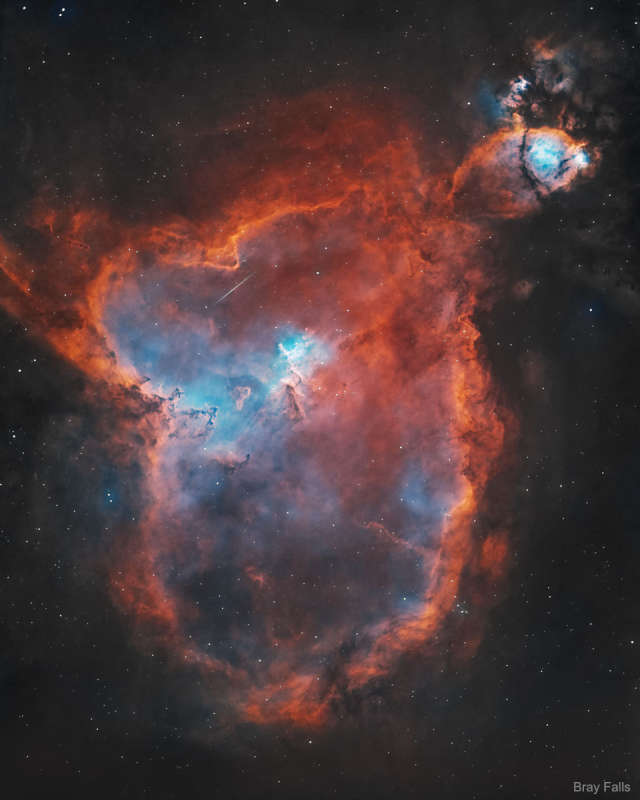Credit & Copyright: Bray Falls
Explanation:
What energizes the Heart Nebula?
First, the large emission nebula dubbed
IC 1805 looks, in whole, like a human heart.
The nebula glows brightly in red light
emitted by its most prominent element:
hydrogen.
The red glow and the larger shape are all powered by a
small group of stars near the
nebula's center.
In the center of the
Heart Nebula are young stars from the open star cluster
Melotte 15
that are eroding away several picturesque
dust pillars with their
energetic light and winds.
The open cluster of stars contains a few
bright stars nearly 50 times the mass of our
Sun,
many dim stars only a fraction of the mass of our Sun, and an
absent microquasar
that was expelled millions of years ago.
The Heart Nebula is located about 7,500 light years away toward the
constellation
of Cassiopeia.
Coincidentally, a small meteor was captured in the foreground during imaging
and is visible above the dust pillars.
At the top right is the companion
Fishhead Nebula.
1999 2000 2001 2002 2003 2004 2005 2006 2007 2008 2009 2010 2011 2012 2013 2014 2015 2016 2017 2018 2019 2020 2021 2022 2023 2024 2025 |
Yanvar' Fevral' Mart Aprel' Mai Iyun' Iyul' Avgust Sentyabr' Oktyabr' Noyabr' Dekabr' |
NASA Web Site Statements, Warnings, and Disclaimers
NASA Official: Jay Norris. Specific rights apply.
A service of: LHEA at NASA / GSFC
& Michigan Tech. U.
|
Publikacii s klyuchevymi slovami:
Heart Nebula - emission nebula - emissionnaya tumannost'
Publikacii so slovami: Heart Nebula - emission nebula - emissionnaya tumannost' | |
Sm. takzhe:
Vse publikacii na tu zhe temu >> | |
